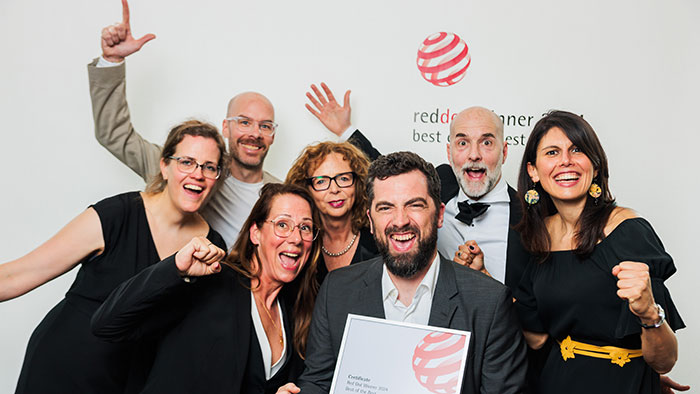At ACC/WCC 2023, Philips is showcasing enhancements to its cardiology portfolio. The company’s cardiology portfolio addresses ever-increasing demand for cost-effective diagnosis, treatment, monitoring, and management of patients with heart conditions such as coronary artery disease, structural heart disease, arrhythmia, and heart failure.
This backgrounder gives you an overview and in-depth information of highlighted solutions. If you would like to have more information, please reach out to one of our Philips press contacts
Diagnostics ultrasound
At ACC.23/WCC, Philips for the first time is showcasing its next-generation compact portable ultrasound – Philips Ultrasound Compact System 5500 CV – delivering premium image quality in a compact form to help increase clinical confidence and first-time-right diagnosis at the patient bedside in situations where every second counts. The Philips Ultrasound Compact System 5500 CV is designed to meet the needs of different clinical specialties including cardiology and vascular. User-interface and workflow compatibility with the Philips cart-based ultrasound systems EPIQ CVx and Affiniti CVx, which are already widely used in cardiology departments worldwide, allows seamless transitioning from one system to another. Philips Ultrasound Compact System 5500 CV is also compatible with ultrasound system transducers for EPIQ CVx and Affiniti CVx. In addition, it features an optional battery add-on that allows up to 2.5 hours of scanning time, artificial intelligence (AI) based automation tools, and support for the company’s real-time telemedicine software, Philips Ultrasound Collaboration Live.
Diagnostics - Spectral CT
Also showcased at ACC.23/WCC is the Philips Spectral CT 7500, which provides an end-to-end solution to help ensure first-time-right cardiac diagnoses from computed tomography (CT) exams. It provides time proven conventional cardiac imaging performance and results via optimized hardware, along with artificial intelligence (AI) and smart software for image acquisition and reconstruction. Paired with Philips Precise Cardiac, the AI-enabled cardiac CT algorithm can eliminate cardiac motion artifacts, potentially eliminating the need for a repeat scan. The system’s unique detector-based ‘always on’ spectral CT capability captures all the data required to reconstruct conventional and spectral CT images, enabling a full cardiac assessment in a single, high-speed scan. The Spectral CT 7500 has demonstrated the ability to reduce the impact of calcium blooming in coronary arteries, enabling improved diagnostic confidence while also enabling equivalent or improved coronary artery image quality in coronary computed tomography angiography (CTA) scans with half the dose of intravenous (IV) contrast.
Image-guided therapy
Another highlight at ACC.23/WCC is Philips Image-Guided Therapy System – Azurion, the company’s advanced image-guided therapy platform that delivers a unique user experience to help users perform interventions confidently and efficiently. Flexible C-arm positioning, tableside touch-screen control, and large-area information displays create the optimum working environment for complex image-guided procedures.
Philips Interventional Applications Platform – IntraSight is an interventional workspace that brings physiology, imaging, and angiographic guidance tools together to optimize treatment plans. IntraSight’s unique features include plug-and-play digital intravascular ultrasound (IVUS), Philips instant wave-Free Ratio (iFR) – the only Class 1A recommended [3,4] hyperemia-free physiologic index – and co-registration, which allow interventionalists to plan procedures with iFR and IVUS guidance without a pullback device. The combination of IntraSight and Azurion provides an unmatched level of diagnostic insight and intuitive tableside control that enables clinicians to provide cardiac and peripheral vascular patients with superior care.
Supporting structural heart disease procedures, Philips Ultrasound System – EPIQ CVxi – premium interventional echo system is capable of delivering high-resolution 3D Transesophageal echocardiography (TEE) imaging, echo-fluoro fusion imaging when paired with Philips EchoNavigator for Azurion, or intracardiac imaging using Philips Intracardiac Echocardiography Catheter – VeriSight Pro.
Diagnostic Cardiology Solutions
Also featured at ACC.23/WCC is Philips IntelliSpace ECG. It provides fast, easy access to ECGs from almost anywhere in the medical facility, to enhance your workflow through extensive connectivity. This software brings sophistication to workflow management. Automatically manage the flow of ECG records via rules you establish for acquisition, review, editing, final storage, report distribution, and more.
Also presented is Philips PageWriter TC70 Cardiograph, which is designed to simplify cardiac patient care. This advanced cardiograph accelerates diagnostic ECG testing and streamlines workflow, by delivering high quality clinical reports virtually anywhere at any time in the medical facility.
Other informatics solutions presented are Philips IntelliSpace Cardiovascular, Philips Advanced Visualization Workspace – IntelliSpace Portal, and Philips Ultrasound Workspace. They add an integrated IT environment that foster collaboration and improve workflows, shortening the path to precise decision making.
Ambulatory cardiac monitoring
Philips helps to extend patient oversight beyond hospital walls and improve outcomes with a cardiac ambulatory monitoring portfolio that includes a range of monitors with flexible wear options to enhance patient compliance. Cloud-based AI and advanced algorithms quickly process high-quality ECG data into actionable reports that integrate with EMR to accelerate decision-making, support streamlined workflow, and enable patient-centered care. Philips Mobile Cardiac Telemetry – MCOT detects atrial fibrillation (AF) with proven 100% sensitivity and 100% positive predictability in the detection of ≥30-second AF episodes [1]. Its use for 30-day continuous monitoring of post-cryptogenic stroke patients prior to fitting them with an implantable loop recorder (ILR) resulted in almost eight times lower costs, minimizing the total cost per patient with detected AF by US$ 198,909 compared to monitoring with ILR only [2].
To connect with experts and learn more about Philips cardiology solutions, stop by Philips booth #338. The clinical study presentation by Dr. Mohamad Alkhouli will take place on March 4, 2023, 1:45 PM - 1:55 PM (CST) and the presentation by Dr. Sean Pokorney on March 6, 2023, 9:45 AM - 10:30 AM (CST). The presentation by Dr. Eric Secemsky is in digital-only format and can be accessed through the ACC.23/WCC eAbstracts site by registered users.
[1] Based on MIT-BIH (Massachusetts Institute of Technology-Beth Israel Hospital) Arrhythmia Database testing of ≥30-second AF episodes. (FDA 510k submission)
[2] Difference in cost per patient with detected AF monitored with ILR ($228,507) minus cost per patient with detected AF patients using the MCOT patch ($29,598). Medic G, Kotsopoulos N, Connolly MP, Lavelle J, Norlock V, Wadhwa M, Mohr BA, Derkac WM. Mobile Cardiac Outpatient Telemetry Patch vs Implantable Loop Recorder in Cryptogenic Stroke Patients in the US - Cost-Minimization Model. Med Devices (Auckl). 2021 Dec 18;14:445-458. doi: 10.2147/MDER.S337142. PMID: 34955658; PMCID: PMC8694406.
[3] Lawton J. et al. 2021 ACC/AHA/SCAI Guideline for Coronary Artery Revascularization. JACC. 2022;79(2):e21-e129.
[4] 2018 ESC/EACTS Guidelines on myocardial revascularization: The task force on myocardial revascularization of the European society of cardiology (ESC) and European association for cardio-thoracic surgery (EACTS). Eur Heart J. 2018;00:1-96.
Share on social media
Topics
Contact

Joost Maltha
Philips Global Press Office Tel: +31 6 10 55 8116
You are about to visit a Philips global content page
Continue












